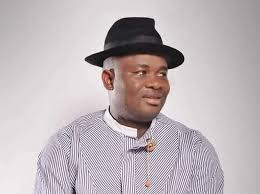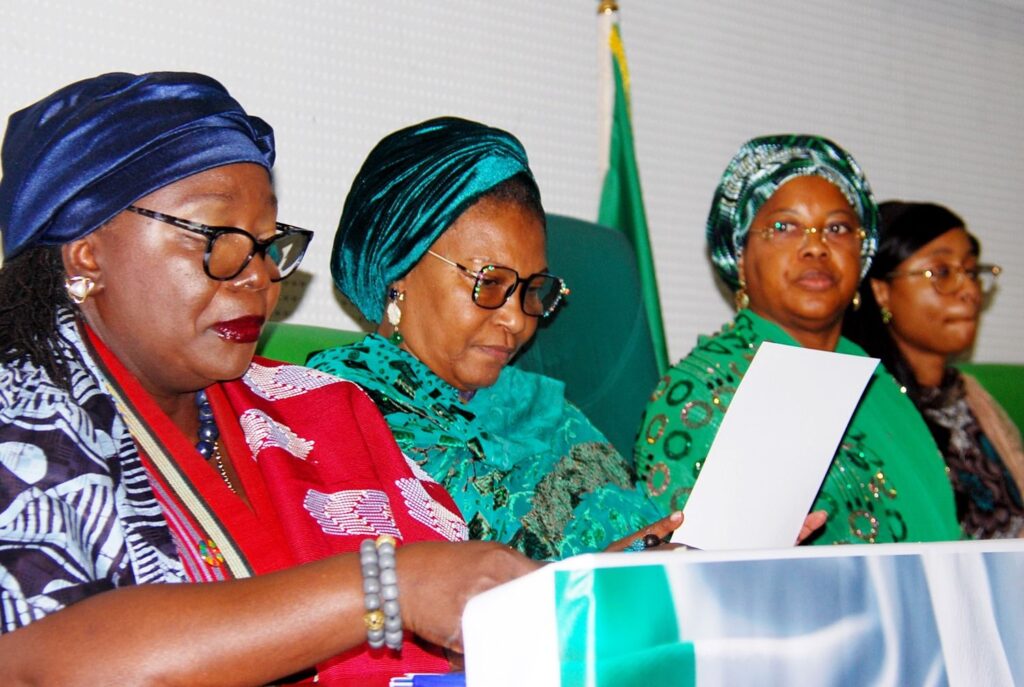The Chairman of the House of Representatives Committee on Women Affairs and Social Development, Hon. Kafilat Ogbara, has called on lawmakers and Nigerians from all walks of life to support the gender equality bill seeking to create 182 special seats for women in the National and State Assemblies.
Ogbara made the appeal on Tuesday at a media briefing organized by her committee in collaboration with the United Nations Development Programme (UNDP) and the Bridge Her Gap Initiative in Abuja.
“I urge all stakeholders government officials, civil society organisations (CSOs), and citizens at large to rally behind this crucial bill,” she said. “It is time to dismantle the barriers that have historically hindered women’s participation in politics and governance.”
She explained that the bill proposes one additional seat per state, including the FCT, to be reserved for women in both chambers of the National Assembly. It also recommends three additional reserved seats for women in each State House of Assembly.
“This bill is not just about increasing numbers; it’s about ensuring that women’s perspectives, needs, and rights are reflected in policymaking. It aligns with our international obligations, including the Sustainable Development Goals (SDGs), particularly Goal 5 on gender equality,” she added.
In her remarks, Senator Ireti Kingibe (LP–FCT) emphasized that women are capable of achieving results when united behind a cause. She urged women to mobilize both among themselves and with supportive male allies to push for the bill’s passage.
She decried Nigeria’s poor female representation, noting that the country is often at a disadvantage in international legislative fora due to its gender imbalance.
“This bill is not just about more women in parliament, it is about unlocking the full potential of our country for faster, more sustainable development,” she said.
UNDP Country Representative, Ms. Elsie Attafuah, applauded the leadership of the 10th National Assembly for championing the proposed legislation.
“This is not just a proposal; it is a defining moment in Nigeria’s democratic evolution,” she stated, while commending the resilience and leadership of Nigerian women across various sectors, including the Super Falcons, champions of the last Women’s Africa Cup of Nations in Morocco.
Attafuah pointed out that women currently occupy less than 5% of legislative seats in Nigeria, a statistic she described as a glaring disparity. She stressed the need to dismantle systemic barriers and foster inclusive governance, pledging continued UNDP support toward the bill’s success.
Also speaking, Princess Nikky Onyeri, Secretary-General of the Association of Women Traditional Title Holders in Nigeria, described the bill as both timely and critical.
She lamented the exclusion of nearly half of Nigeria’s population from decision-making processes, arguing that increasing the presence of qualified women in leadership would significantly boost national development and GDP growth.
“We plead with lawmakers and the Executive to pass this bill. I’m optimistic, especially with President Bola Tinubu’s gender-friendly disposition. The House leadership is showing strong support, and the time is now,” Onyeri said.
She called on all Nigerians, men, women, traditional leaders, and even skeptics to support the bill and work collectively toward building a more inclusive political system.














